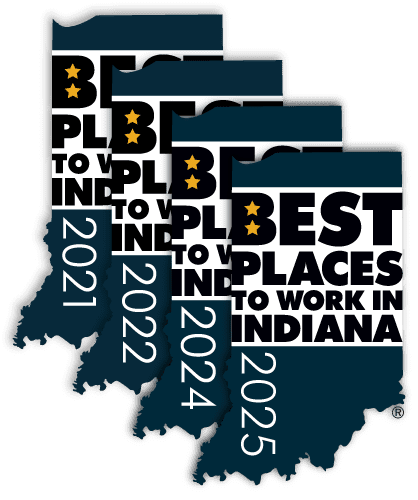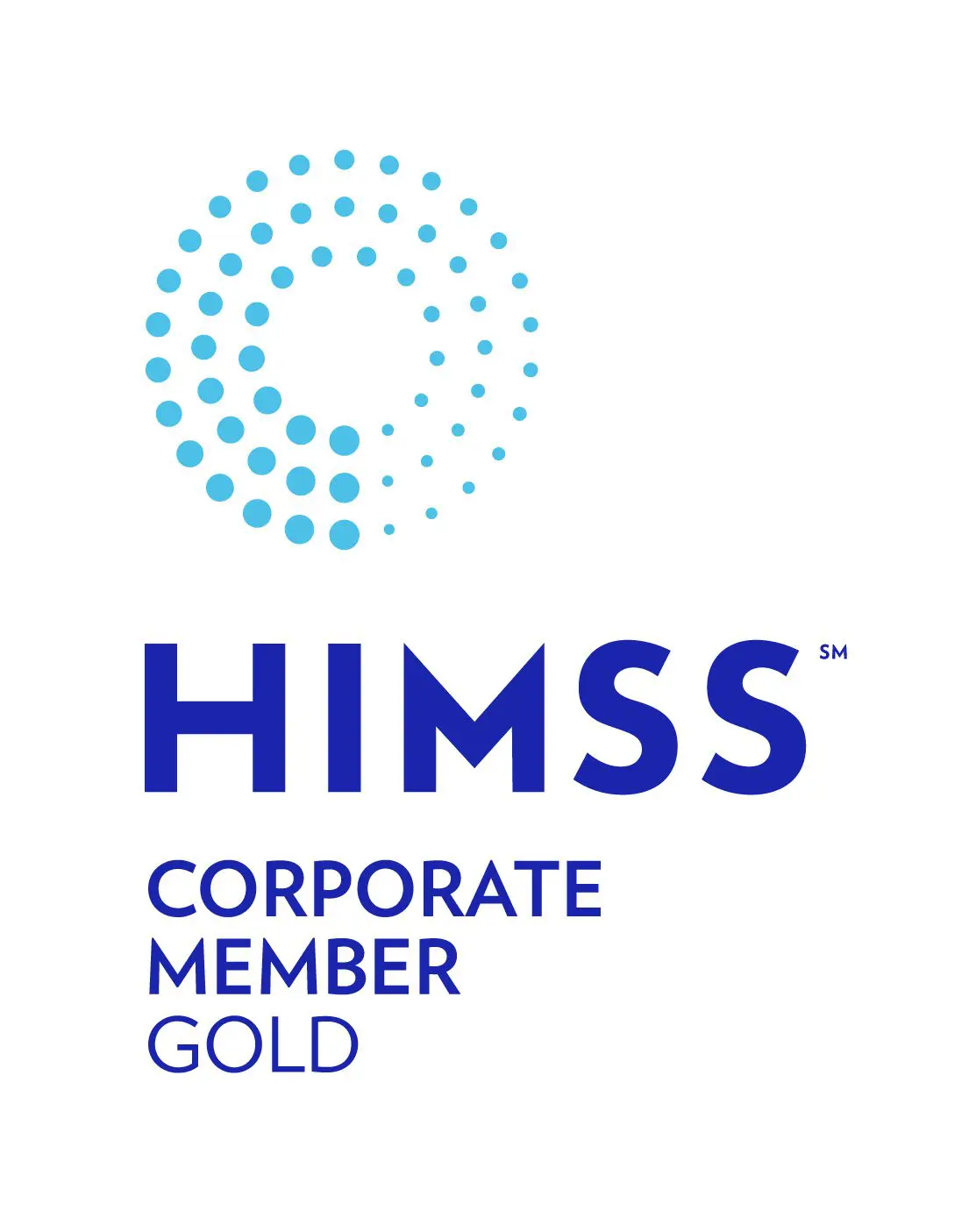
According to the U.S. Census Bureau, more than eight million Americans will move in one year. There are a variety of reasons people change their homes. According to our survey, Americans have been moving in the last 5 years because of living situation changes (switching roommates, getting married, etc.), buying a home, or because they wanted to live somewhere different.
While Americans make sure to prioritize housing and neighborhoods when deciding where to live, one important issue often gets put on the back burner: healthcare.
5 Ways Americans Find New Doctors Near Them
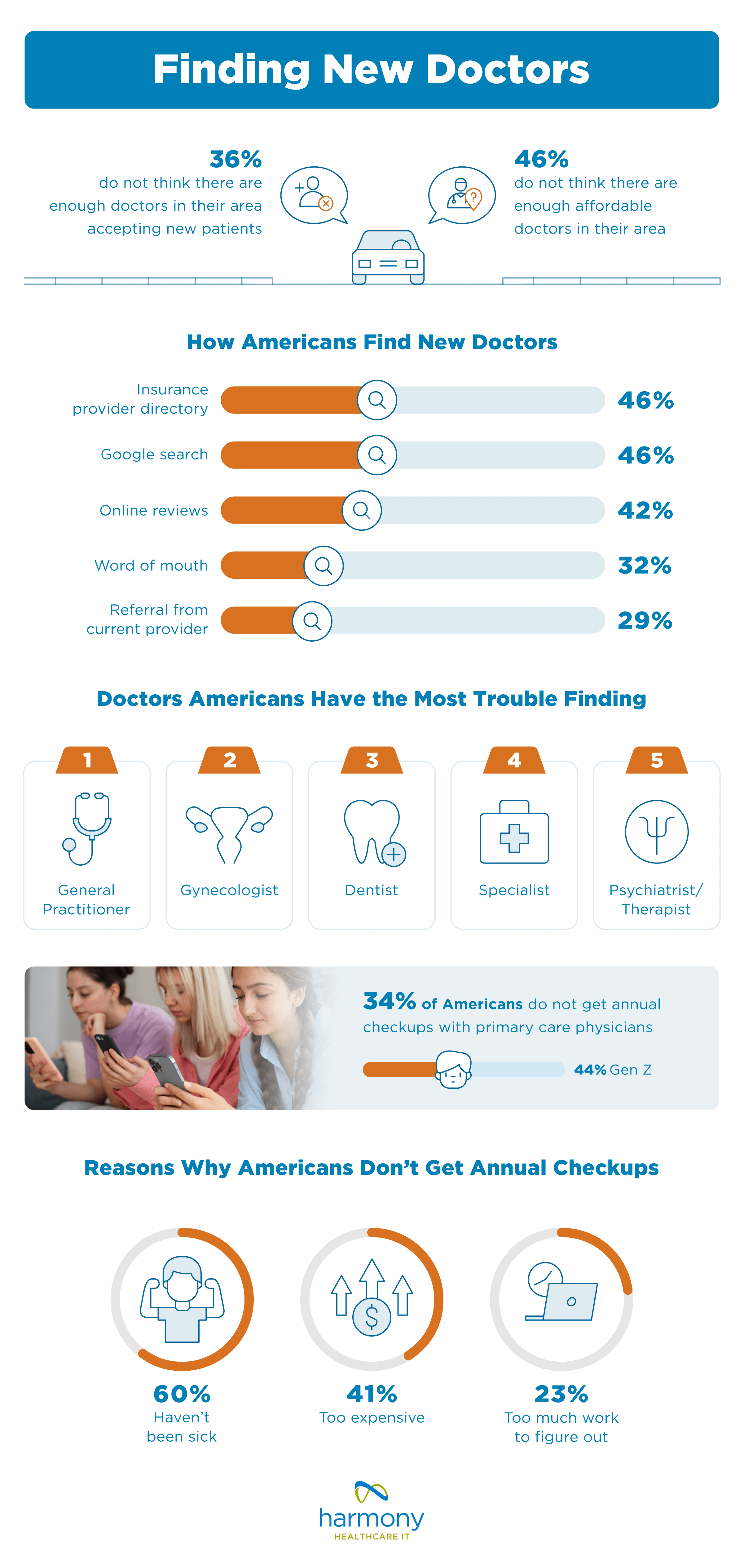 The process of finding a new doctor can be challenging. More than 1 in 3 (36%) Americans do not think there are enough doctors in their area accepting new patients. Others struggle to find doctors that they can afford. Nearly half (46%) of Americans do not think there are enough affordable doctors close to where they live.
The process of finding a new doctor can be challenging. More than 1 in 3 (36%) Americans do not think there are enough doctors in their area accepting new patients. Others struggle to find doctors that they can afford. Nearly half (46%) of Americans do not think there are enough affordable doctors close to where they live.
In general, Americans have the most trouble finding general practitioners followed by gynecologists (for women), dentists, specialists, as well as mental health professionals such as psychiatrists or therapists. While it may seem daunting, there are five ways Americans commonly find new doctors near them.
- Insurance provider directory: Nearly half (46%) of Americans go straight to their insurance to avoid insurance issues and headaches. Insurance providers often have online directories where users can search for doctors within or near their zip code.
- Google search: Others turn to search engines like Google, searching for phrases such as “doctors near me” to see which providers are closest to the vicinity of where they live.
- Online reviews: Many look specifically at reviews for doctors. Reviews can be found anywhere from insurance directories to search engines to sites specifically made for physician reviews (i.e. Healthgrades, Zocdoc, etc.).
- Word of mouth: 32% of Americans turn to family, friends, or other trusted people for recommendations on which doctor or healthcare provider to see.
- Referral from current provider: Some ask their current provider for a referral when looking for a new doctor.
Reasons Americans Skip Annual Checkups
However, some Americans do not regularly go to the doctor. Whether moving or not, 34% do not get annual checkups with a primary care physician. For Gen Z, that statistic is even higher with 44% not going regularly for physicals.
The main reason Americans skip annual checkups is because they haven’t been sick. Over 2 in 5 (41%) say it’s just too expensive, and 23% admit that it’s too much work to find a primary care provider.
91% of Americans do not Prioritize Healthcare When Choosing Homes
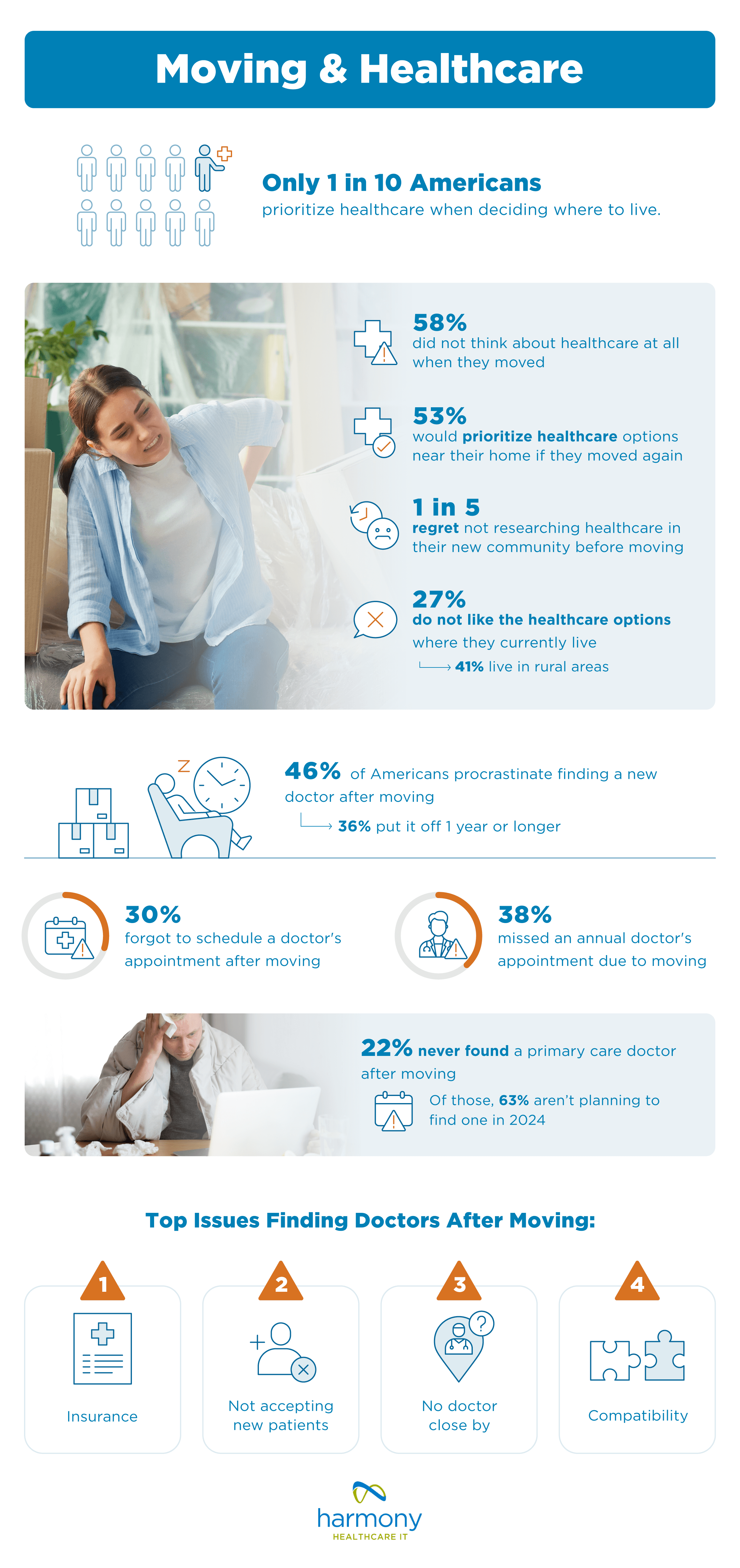
When choosing where to set down new roots, people have to make important choices: what school districts are in their area, the home value, and how long their commute will be to work. While 1 in 10 (9%) Americans prioritize healthcare when deciding where to live, the other 91% admitted it’s not one of their most important priorities.
Of 1 in 2 Americans who moved within the last 5 years, 58% did not think about healthcare such as nearby hospitals or doctors’ offices at all when they relocated. 1 in 5 regret that, and 53% say they would prioritize healthcare options near their home if they moved again.
The top issues Americans run into while trying to find a new doctor and establish care are:
- Getting one in insurance network
- Not accepting new patients
- No doctor close by
- Compatibility
Some found themselves postponing doctor’s appointments after moving with nearly 1 in 2 (46%) admitting to procrastinating finding a new doctor. 36% put it off for one year or longer. About 1 in 4 (22%) never found a primary care doctor after moving, and, of those, 63% aren’t planning on finding one at all in 2024.
Managing Your Medical Records
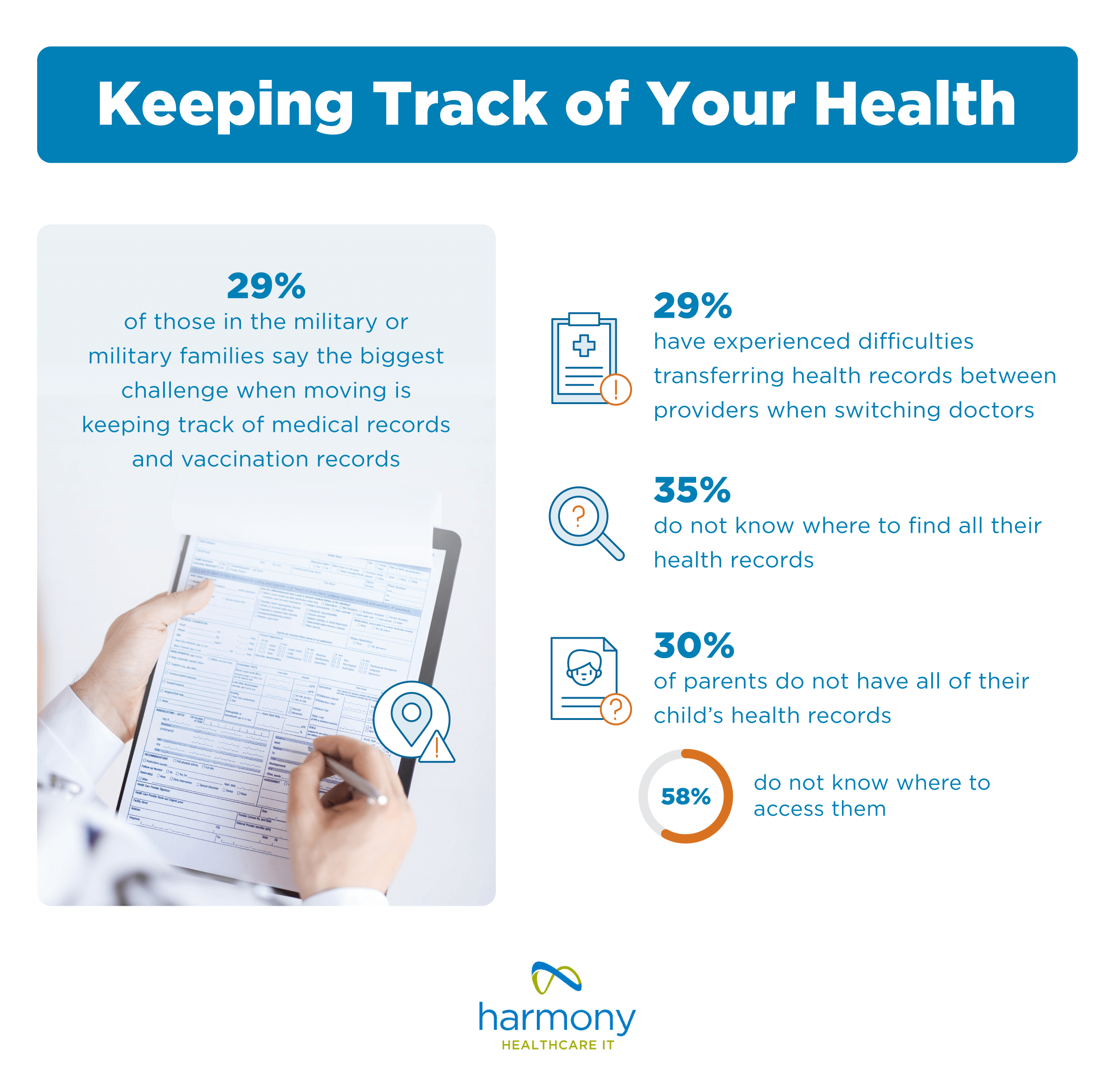
Something important to keep in mind when moving or switching doctors is your medical records. Over 1 in 4 (29%) Americans have had trouble transferring health records between providers when switching doctors. 29% of those who have served in the military or grown up in military families say keeping track of medical and vaccination records when moving was one of their biggest challenges.
Many Americans appear to struggle when it comes to keeping track of their medical records. Google searches for “How do I find my medical records” increased by 26% from January 2021 to January 2024. Survey statistics show 35% do not know where to find all their health records. Of those who are parents, 30% do not have all of their child’s health records, and 58% do not know where to access them if they need to get them.
We know that the moving process is chaotic. It’s easy for a lot to fall through the cracks when you are in the process of relocating. If you’re overwhelmed, we recommend at least checking out the closest hospital to your new home in case of emergency (be sure to check and see which one is in your insurance network) and setting up a reminder on your phone to look for new doctors once the brunt of your move is complete.
Methodology
In April 2024, we surveyed 1,030 Americans to get their feedback on healthcare. 50% were men, 48% were women, 1% were non-binary, and 1% would rather not say. Ages ranged from 18 to 80 with an average age of 42. 52% had moved within the last 5 years and 48% had not.
For media inquiries, please contact media@digitalthirdcoast.net.
Fair Use
When using this data and research, please attribute by linking to this study and citing www.harmonyhit.com.

